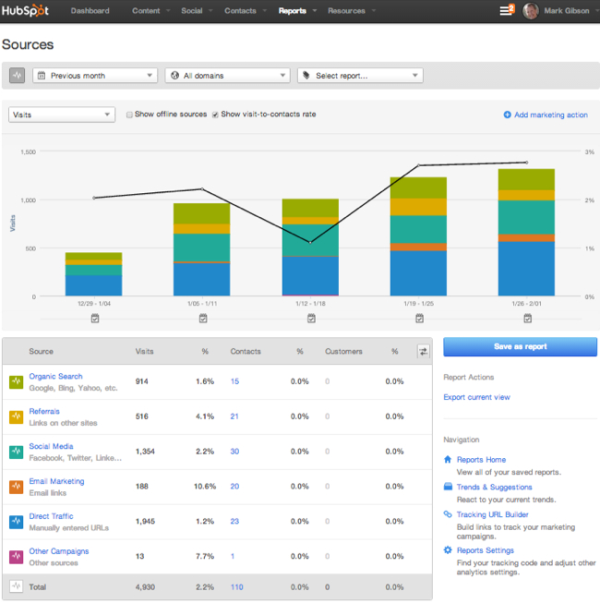This is a guest post written by Amanda Walters, a Business Development Representative, on my sales team at HubSpot.
Let’s be honest, when the term "salesperson" comes to mind, it doesn't always have the best connotation. A prospect’s thoughts as they answer the phone are usually something along the lines of "Oh god not another salesman harassing me with cold calls”. This of course, is if they even answer the phone at all.
I used to be one of those types of prospects and then I found myself on the other side of the phone line...as the salesperson. I'm technically a business development rep who has only been in sales for 8 short months. But in sales I've been forced forced to learn fast, so I figured I'd share a valuable concept that I've learned thus far.
No matter who you're calling, "HONESTY IS THE BEST POLICY". This is, in my opinion, the best way to gain trust, establish credibility and break through the preconceived notion that you're just another swindling, dishonest salesperson trying to make a sale.
My Experience:
I was lucky enough to spend a few month sitting next to a Senior Inbound Marketing Specialist, Mike Fradette, here at HubSpot who had once been in my exact position! One of the first things he taught me is to find companies like our customers, and leverage the knowledge about our customers to connect and relate.
Mike told me that if you can tell someone about a time where you have:
- Spoken to someone in their similar position
- At a company that is similar to them (give an example of similar industry services or products that they offer)
- Who were facing x,y and z problems or were looking to improve on x,y and z
- and what you did to help them
....it should enable you to establish yourself as a credible resource to them and get them to feel comfortable opening up to you. Once you've done this, you can actually get the information you need to understand how and if you can help them.
WHY IS THIS?
- You have been upfront in why you're not just calling anyone, but why you're calling them.
- You're using relevant industry terms that will resonate with them and you'll be speaking their language.
- You're giving examples of problems they too may be facing and you're explaining how you were able to help someone in the past.
SO HOW DO I DO THIS?
What that essentially is, is something called a positioning statement. These are very powerful and speak to the idea that "Honesty Is The Best Policy" whether you're using a positioning statement on a call, in an email, or on a voicemail.
Be upfront, make them feel special and explain why you were EXCITED to call them, excited at the opportunity to potentially help them in the same way you were able to help someone else, due to your EXPERIENCE!
This is especially valuable for a person newer to sales but also to someone who has been in the game for some time now. Since learning this valuable advice, I almost always start off any conversation with some sort of positioning statement that is honest and true.
I'll leave you with a personal experience where this has worked for me:
One day I turned to Mike who was sitting next to me at the time and said "Mike, give me some ideas for good fit companies I can source today and start calling".
Mike replied "One of my best customers is a company out of New Jersey and they are in the clinical research and testing services industry and specialize in clinical trials, clinical testing etc. They typically have a very consultative sales cycle and give their industry they have no problem creating awesome content because you have to be knowledgeable in order to be competitive in this space. Those types of companies are a great fit to be successful with Inbound Marketing"
Perfect. I called the VP of Business Development and set up a time to speak. When we connected for the call I opened with this positioning statement which I'll admit I took the time to write out in advance:
"I'm sure you have a lot of questions about HubSpot which I will do my best to answer but first I wanted to just explain my reasoning for reaching out. Not sure if you've heard of them, but we work with a company that's very similar to yours. When we started talking to them, we spoke specifically with their Director of Business Development - just like you - who was focused on lead generation and growing the business. They specialize in clinical research and testing services specifically in the environmental, pharma & medical device space. They have a really educational sales process and were looking for ways to leverage their online presence to drive more leads and nurture them more effectively.
Would you like to share a bit about your role, your sales process, and who you're targeting so that I can better understand if I can help you too?"
This positioning statement combined with sticking to my newly found "honesty" policy helped me to have potentially the best conversation with a prospect that I've had since beginning at HubSpot. I've stayed on this path since and it is in my opinion the best policy for both ends of the phone line.
So in short, be honest! And use your positioning statements! They'll lead you to more meaningful conversations and business relationships then you could have ever imagined.

